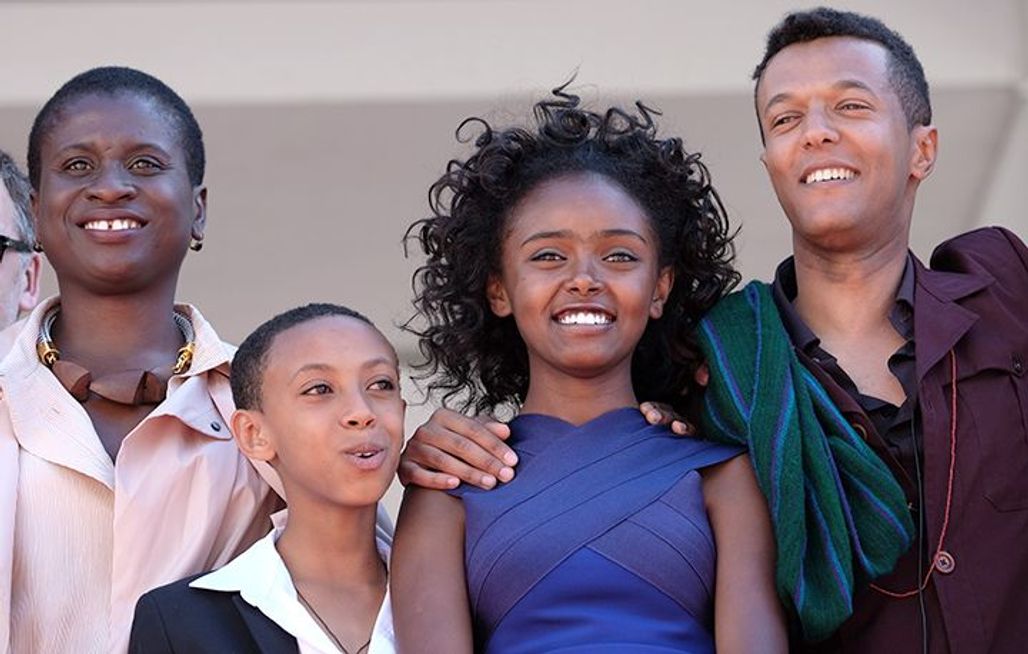
UN CERTAIN REGARD – Lamb, interview with Yared Zeleke

This is the first selection and first feature film for the 36-year-old director, who is also the first Ethiopian filmmaker to be selected at Cannes. He tells us the story of Ephraim, a young boy aged 9 sent by his father to live with distant relatives in the mountains. A story that comes to life in his home country.
How did you begin to work on this film?
I initially had a 20-page version of my script, also called Lamb, back in 2010. It was going to be my master’s thesis film for New York University, where I was writing & directing major. My writing teacher at New York University, director Todd Solondz (Happiness), encouraged me to turn the story into a feature-length version.The sentiment was echoed a year later when I met my current producer, Ama Ampadu. Soon after, I begin to write my first feature screenplay in June of 2011. Exactly one year after its completion, Lamb won the script development fund from Amiens Film Festival. This award began the opening up of opportunities for the film. We began the casting process in Addis Ababa in 2014. From January to June, I auditioned around 6,500 people of all ages and backgrounds for the various characters in the story. The priority was the seven main casts, three of which were kids. So my main assistant, Terhas Berhe, and I went to dozens of schools in Addis Ababa in search of the right children for the roles. In addition, we walked around the streets approaching people, putting up flyers, advertised on the national radio, etc. The summer of 2014 was spent seeking the right local crew. As soon as the international crew (from France, Germany and Kenya) arrived in August, we began the preparation for the shoot in October and November. Like every aspect of this film, the production period was an epic journey.
Lamb © RR
Please describe your working method and the atmosphere on set. Any anecdotes to share?
My method for directing this very complicated film was simple: communicate, listen and act. Despite the harsh conditions, the atmosphere on set was as magical as the mountains surrounding us. The first part of Lamb was shot in the hot lowlands. The second was in the chilly highlands (at an altitude between 2,100 to nearly 3,000 metres above sea level). Most of the farmers we worked with had no electricity. Some of the kids had never seen Europeans before, which caused an avalanche of cries. We were like aliens from afar with strange equipment and questionable intentions. Overcoming both small and overwhelming obstacles–one actor nearly gored by a bull, another almost kicked by a horse–we managed to finish the film on time. On the last day, I felt relieved and knew I had somehow accomplished my first feature film.This was achieved mainly because I had a brilliant team of creative collaborators. First, the majority of the local folk were incredibly kind and helpful. They may not understand what filmmaking was about, but once we earned their trust they began to work with us devotedly. Second, the international crew consisted of the best professionals from various countries and continents. I genuinely believe each crew member cared for the story, the cast, the country and each other. Everyone collectively understood that the making of this film was as unique as the landscape in that part of the world.
Please share a few words about your actors.
I was very fortunate with the cast of this film. The persons I wanted to work with most for both main and supporting characters were not only available but fulfilled their roles radiantly. Before I began casting, I had made a list of the characteristics needed to play the protagonist. The boy that would become Ephraim had to be a combination of the following: Intelligent; open; trusting; have the ability to tap into his emotions; been wounded or scarred by some childhood trauma, but still knows how to love & be loved; playful; a good listener; subtle; no fear of the camera; can handle the physical and psychological stresses of a feature film production. Radiat Amare possessed all of these features and more. He was tough, generous and funny. He withstood carsickness and the cold climate of the high altitude to give a most honest performance at every take. Within a month, he had learned enough English, French and German to crack jokes with the international crew. Radiat just radiated joy! Out of all the cast, Kidist Siyum was the one whom I knew at first sight to be the right girl for the rebel teen role. And throughout the shoot, Kidist distinctly evoked the lioness that is Tsion. Welela Asefa, though younger than what I was looking for, exuded lots of love like her character Emama. Surafel Teka commanded authority like Solomon, even though he is a gentle and quite comical man. Rahel Teshome was as beautiful and complex as Azeb.
What are your views on the film industry in Ethiopia?
Ethiopians yearn to see images of themselves and their stories on the big screen. That is why they flock and fill up most of the movie theatres in the cities. However, the art of cinema has yet to be realised in the country. The film industry needs development in all areas–financial, technical and artistic.
Can you tell us about your next project?
I have two scripts in development. One based in Ethiopia and the other in the Western world–Europe or North America. Both stories differ in concept as much as they do in geography. We shall see which one is made first.
SCREENING
Wednesday 20th May / Debussy Theatre / 4.30 pm
>> View the interactive calendar
.jpg)


